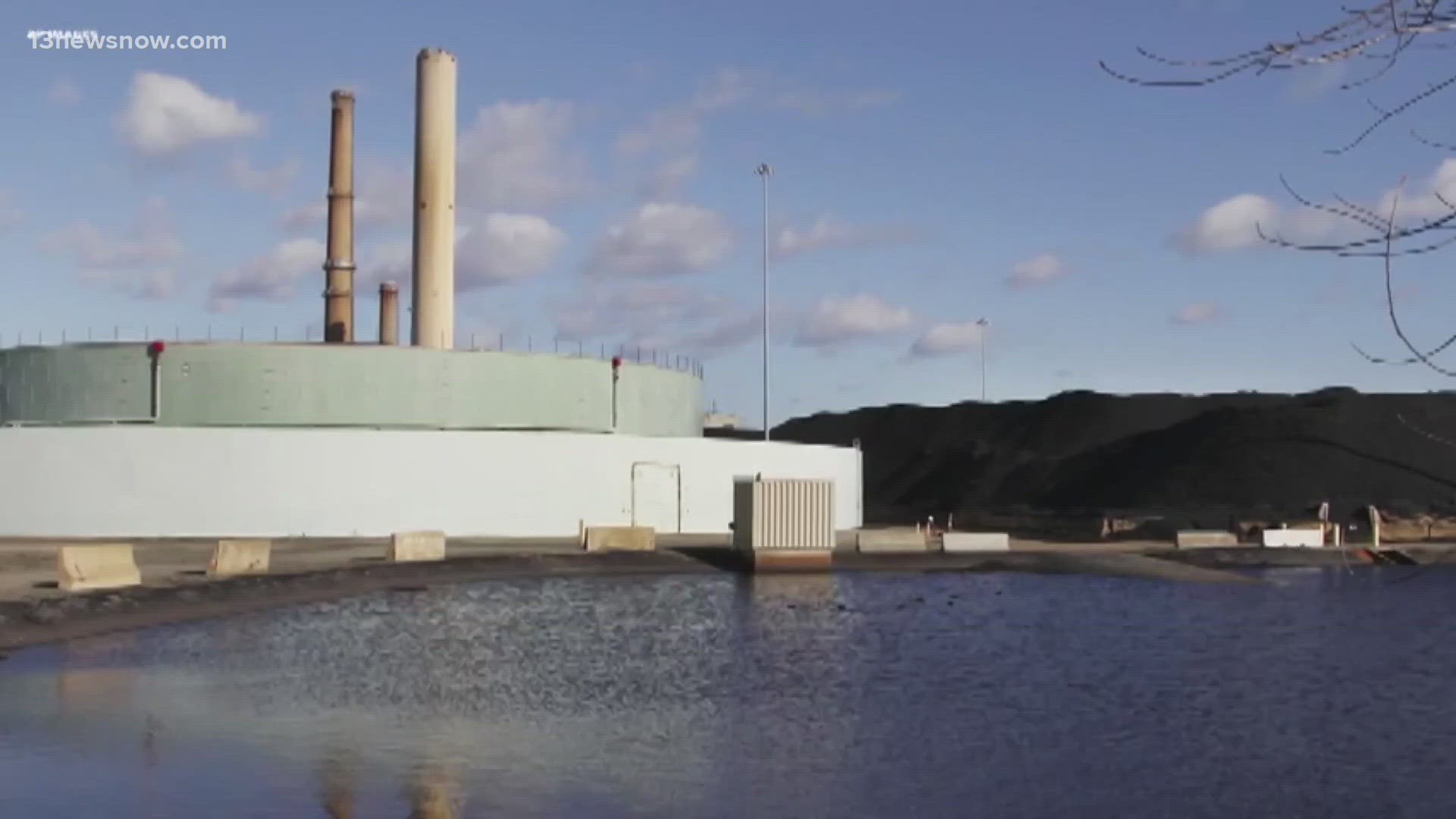NORFOLK, Va. — State leaders are a step closer to deciding if Virginia will keep its cap on carbon emissions.
The Commonwealth is mulling a plan to leave the Regional Greenhouse Gas Initiative, or RGGI. It’s a program Virginia joined in 2020, aiming to reduce emissions from 11 East Coast states.
A public comment period closed Friday night and more than 6,000 gave their opinion.
13News Now combed through the submitted comments, and most of them support keeping Virginia in the Regional Greenhouse Gas Initiative. However, many also urge the Commonwealth to leave the program.
The eleven states participating in RGGI require power plants to buy permits to pollute. Over time, the permits decline in quantity with the hope it will incentivize companies to find ways to reduce carbon emissions.
"I want to leave this world better than how I found it for my kids, all of our kids for that matter, and so, things like RGGI will help us get there over time," said Charles Brown II with the Chesapeake Climate Action Network
Brown is a proponent of RGGI and said money made from the permits in the Commonwealth goes towards energy-efficient programs for low-income Virginians and the Community Flood Preparedness Fund.
"It’s raised over $500 million and some of that money is being funneled into Hampton Roads. My point of view is, if it’s actually working, why are we even trying to remove ourselves from it?" he asked. "We're the only ones that seem to be proactively trying to get ourselves out of it."
Virginians had two months to make their voices heard and thousands took advantage.
One person who supports Youngkin’s move to leave said, "Democrats are living in a fantasy world," and "The electrification of society is more realistic as an aspirational goal for 50 to 75 years from now."
Others call RGGI "extreme," including a commenter who said they support finding a “more rational way” to reduce CO2 emissions.
On the other side of the argument, and in a majority of the comments, Virginians pled with Youngkin to stay put.
One person wrote, "Power plants need more regulation not less and without the RGGI that won't be possible."
"I am deeply concerned about our climate catastrophe and believe that the RGGI can help us to have clean air, water and food," said another.
Others asked the governor to listen to the "vast majority of Virginians who support this key climate program."
Brown's organization submitted a comment of their own, after gathering support from 20 Hampton Roads businesses.
"They stood with us in saying that when flooding happens in our area, my business is directly impacted. I have to close my doors, but it also impacts people who would spend money with me, as well," he said. "Because this impacts me and I understand that money from RGGI is being funneled down here to improve our life and our business, right, infrastructure-wise and just resiliency-wise, that we would like to stay in it."
Youngkin has vowed to pull the Commonwealth out of RGGI since he was elected and blamed it for rate increases by the state utility, Dominion Energy.
He maintains they are well within their right legally to withdraw from the program by repealing a regulation that allows the state to participate. Democrats and other groups said the move would go against the state law and circumvents the General Assembly.
In December, the Virginia Air Pollution Control Board voted in favor of that regulation and moved it to review by Youngkin and Virginia's executive branch, followed by the 60-day public comment period.
The Clean Energy and Community Flood Preparedness Act, which is the legislation that incited Virginia's entry into RGGI, became law in 2020 and the state participated in its first auction in March 2021.
Because of that law, it's legally ambiguous if Virginia can leave RGGI without new legislation and not solely by regulatory action.
Despite this, the Youngkin administration pressed forward with the regulation and argued the law authorizes but doesn't require the state to participate in the program.
The next step will be for state leaders to review those comments. Virginia's current contract with RGGI ends at the end of this year.
According to the RGGI website, emissions have reduced by more than 50% since the program's inception, and so far raised nearly $6 billion to invest into local communities.

